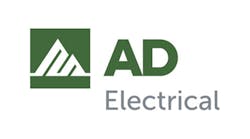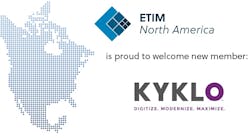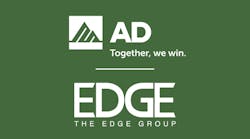One of Jack Schuster's favorite business books is “Focus: The Future of Your Company Depends On It,” by Al Ries. The book urges managers to pare down their business focus to the things they can do really well. For EPCO Engineered Products Co., a 31- year-old electrical manufacturer based in Minnetonka, Minn., that's marketing wire assemblies, lighting accessories and specialty lighting products with a blend of product innovation, clever promotions and a devotion to customer-service basics. The 60-employee company markets its products throughout the United States with independent sales reps, and has more than 1,500 distributors stocking its products.
“I am trying to create an identity around that niche of products,” says Schuster, the company's president and a 21-year company veteran. “We are trying to be really good at a few things.”
The company got its start when Cliff Krenick invented a stranded grounding pigtail that saved electricians time when they mounted receptacles to electrical boxes. Up until that time, electricians cut pieces of solid wire to make their own pigtails. Pete Lee, owner of Lee-Noonan Co., a Minneapolis rep and current owner of EPCO, hired him to start Engineered Products and become the general manager, with the stranded pigtail as the first product. The business was incorporated in 1976.
Today, one of EPCO's areas of expertise is developing products that take advantage of sales opportunities created by changes in the National Electrical Code (NEC). For instance, several years ago the company put nickel-plated screwshells into its keyless lampholders because a new NEC regulation at that time said lighting fixtures with nickel-plated screwshells could be used in corrosive agricultural applications. That screwshell would not corrode, in contrast to fixtures with the more common standard aluminum screwshells.
This small change helped out some of EPCO's Minnesota distributors with accounts in the state's poultry industry, because keyless lampholders with nickel-plated screwshells could be used in poultry confinement buildings (where chickens lay eggs). “Maybe it costs me four or five cents per lampholder to have it,” says Schuster. “Some other manufacturers have standardized on the cheaper aluminum shell.”
In addition, EPCO manufactures this fixture so that it can use the company's protective cages from its line of temporary cordlights. This meets the local standards in some parts of the United States that say these lampholders cannot be used on some residential applications without protective cages. “I have a patent on our temporary cordlight where the cage attaches to the socket,” he says. “We took that feature and built our stringlight cages so they would snap onto our lampholder.”
To help the company keep a technical eye on NEC changes and the sales opportunities they may present, and to be on the lookout for simple ways to make its products easier to use on job-sites, Schuster has a licensed electrical contractor on staff. The labor-saving feature recently added to EPCO's line of Tiger temporary HID lights is an example of the company's attention to customers' job-site needs.
“The Tiger 400 is made in China at the same factory as three or four other manufacturers' fixtures,” says Schuster. “I had to have something unique. It's a big fixture that weighs 22 pounds and is used in a construction job in the high bay of a ceiling. Customers may have a lift, but in many cases a guy has to climb up a ladder to install it. If you look at my fixture and the other guys', they look exactly the same — except I have a handle. I told a contractor, ‘You can buy mine or you can buy the other guys’. It will probably cost the same price. Which would you rather climb up the ladder with?' It's a no-brainer.
“We also added a handle on the box, because it's big and bulky. That didn't cost me anything to do. We try to find a way to add some value to the product, some feature.”
Along with its focus on improving on conventional products, Schuster is constantly tweaking EPCO's customer service processes. The company pays bonuses based on how well employees do in hitting service metrics such as order-fill rates, order accuracy and on-time delivery.
Down the road, Schuster says customers can expect even more new products. A key takeaway from last year's rep council was for EPCO to develop more new products and to get them to the market faster. As part of its efforts to do just that, the company recently moved into a new 87,000-square-foot facility. Schuster believes the new building will help accommodate the company's rapid growth as a niche marketer. After a record breaking sales year in 2007, he expects solid double-digit growth in 2008, even in uncertain economic times.
“When you are small, the economy shouldn't affect you as much as when you are big and have significant market share,” he says. “Whether the economy is strong or uncertain, if I don't have your business, anything you buy from me is new.”








